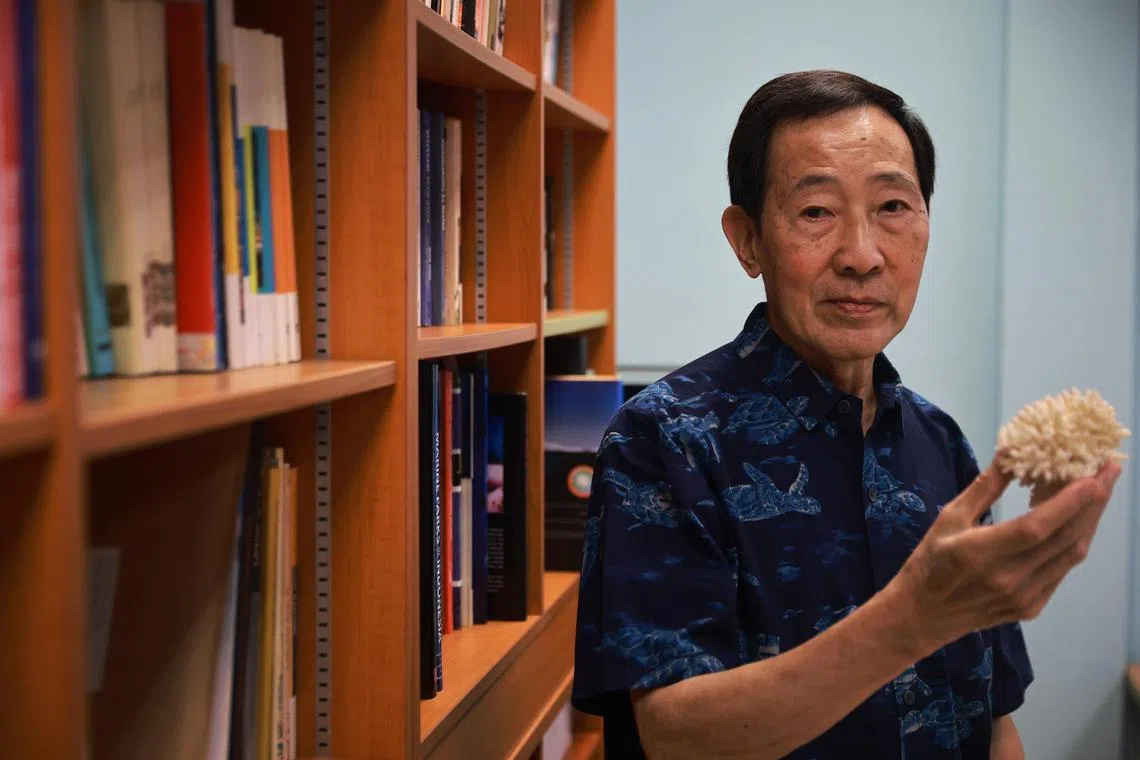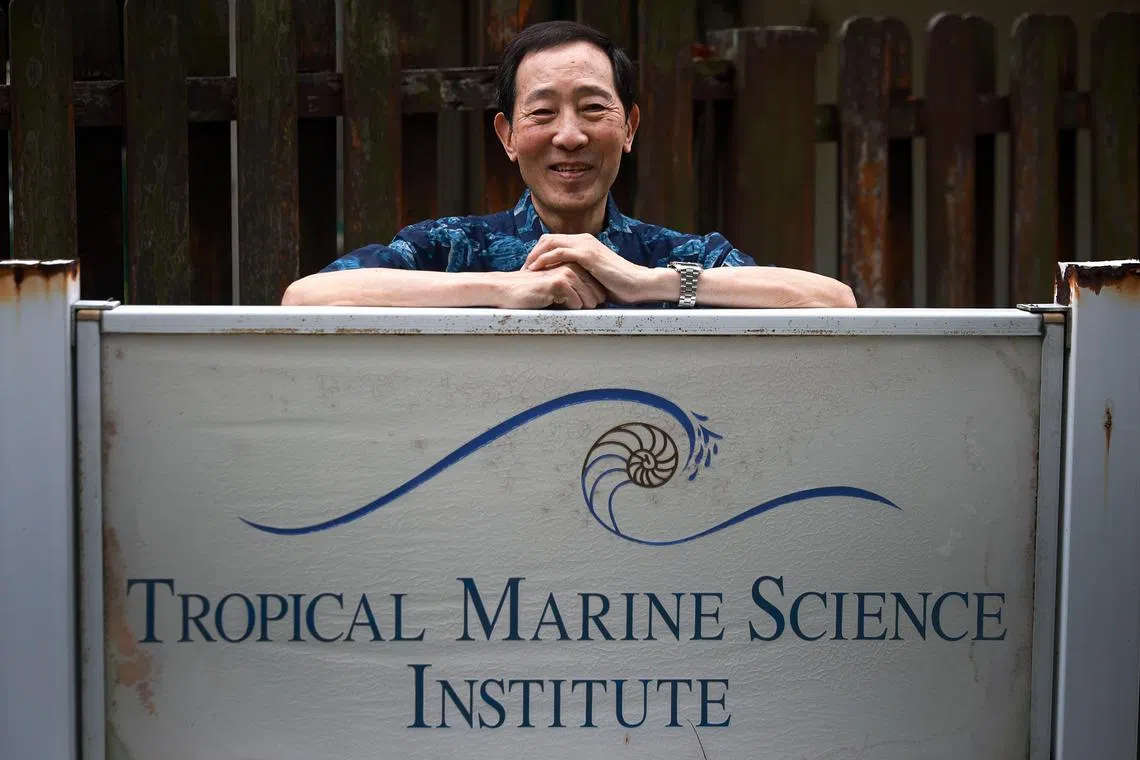Coral reef advocate Chou Loke Ming is second S’porean named Asean Biodiversity Hero
Sign up now: Get ST's newsletters delivered to your inbox

Professor Chou Loke Ming was given the award for for his pioneering work on coral reef restoration and management..
ST PHOTO: JASON QUAH
SINGAPORE – He loves the ocean so much he was willing to study house lizards for a PhD so that he could get closer to the sea.
Emeritus Professor Chou Loke Ming of the National University of Singapore’s (NUS) Department of Biological Sciences said it was the only way he could study his true passion – marine biology.
Prof Chou said: “The reason why I went into vertebrate biology was that was the scientific expertise that they were lacking at the time... So I picked up vertebrate biology, got my PhD and, immediately after that, I switched to marine biology and stuck with it ever since.”
He added: “If you want something, you might have to do something else to get it if you can’t get it directly that way. Indirectly or directly, eventually, you will get it.”
The founder of the Reef Ecology Lab at NUS and the Tropical Marine Science Institute, Singapore’s research hub for all things ocean, was given the Asean Biodiversity Hero Award in November for his pioneering work on coral reef restoration and management.
The annual award recognises passionate individuals in Asean who have dedicated their lives to protecting diversity. This is only the second time that the prize has been given out.
The first time was in 2017, when it was awarded to 10 people, including Professor Leo Tan, who retired in December as professorial fellow and director of special projects at NUS’ science faculty.
When Prof Chou, 76, was a student at the then University of Singapore in the late 1960s, he would charter a boat with a group of friends to go snorkelling and be closer to marine wildlife.
“The water was so clear and we could see so many different things,” said Prof Chou.
But when more intense urban development began in the 1980s, the amount of sedimentation in Singapore’s waters increased.
According to the United States Environmental Protection Agency, sedimentation is one of the primary stressors of coral reef health because it smothers coral and interferes with the colony’s ability to feed, grow and reproduce.
He said: “In those days, there were no impact assessment studies at all. So if you want to do a project, you just plan it and decide to follow through with it... There were no containment measures put in place to reduce the impact on marine wildlife.”

ST20230110_202317388467/gsnus10/Gena Soh/Jason Quah Prof Chou Loke Ming said that the onus lies with the people to be creative with what they can do to promote the growth of natural spaces.
ST PHOTO: JASON QUAH
But with persistent advocacy and research by passionate conservationists, the landscape of coastal development is more robust now, with proper protections, said Prof Chou.
Since 2004, environmental impact assessments (EIAs) have been required for development projects in the coastal and marine areas, and projects found to cause damage to the natural environment are required to include mitigation, repair and compensation for the damage.
While Prof Chou believes that Singapore’s move towards better valuing of nature is heartening, he does not think that the state’s relationship with nature ends there.
“Our present strategies of mitigating damage to nature are the consequence of viewing nature as part of us... But I still believe that we can go one step further, of beginning to view ourselves as part of nature,” he said.
Singaporeans should not view nature as only a finite thing that has to be protected, like a precious body part, he explained. They have to be stewards serving the greater flourishing of nature as a whole.
While he believes that such service must inevitably be managed with the pragmatic demands of the country, he said that the onus lies with the people to be creative with what they can do to promote the growth of natural spaces.
Pointing to examples such as the thriving coral growth on the giant artificial reef structures off the Southern Islands, Prof Chou said: “Singapore is a case of small area and high population density, and so the environment has to be changed for development to meet its needs...
“But with proper proactive planning, it is possible to keep nature and development side by side and, in fact, promote nature’s flourishing.”


